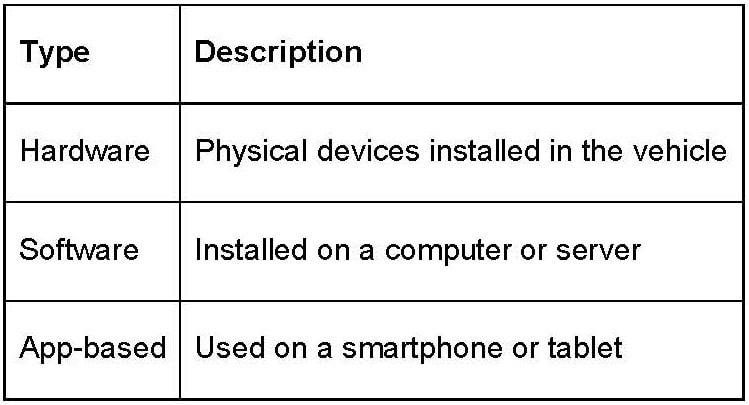Small Business Topics: A Comprehensive Guide for Success
As a professional small business consultant, I’m excited to share with you a comprehensive guide on some of the most essential topics for small business owners. From management and marketing to strategy and growth, this article will provide you with valuable insights and actionable advice to help your business thrive.
Small Business Management
Effective small business management is the foundation for success. This encompasses a wide range of responsibilities, including financial management, human resources, operations, and decision-making.
Maintaining a healthy financial outlook is crucial for small businesses. This involves creating and adhering to a budget, invoicing customers promptly, and managing cash flow carefully. Proper financial management can help you avoid common pitfalls, such as undercapitalization or late payments.
Furthermore, building and leading a talented team is essential for small business management. From hiring the right employees to fostering a positive work culture, your human resources strategy can make or break your business. Invest time in onboarding, training, and employee development to ensure your team is equipped to support your company’s growth.
Lastly, optimizing your operational processes can streamline your business and improve efficiency. This may involve implementing systems and technologies, automating repetitive tasks, and continuously evaluating and refining your workflows.
Small Business Consulting
Seeking the guidance of a small business consultant can be invaluable for entrepreneurs. These professionals possess deep expertise in various aspects of running a successful small business, and they can provide an unbiased, outside perspective to help you navigate challenges and seize opportunities.
Small business consultants can assist with a wide range of services, including strategic planning, market analysis, financial management, marketing, and even organizational restructuring. By tapping into their knowledge and experience, you can gain a competitive edge and make more informed decisions for your business.
One of the key benefits of working with a small business consultant is their ability to identify areas for improvement that you may have overlooked. They can help you analyze your current operations, recognize untapped potential, and develop a comprehensive plan to achieve your goals.
Small Business Marketing
Effective marketing is essential for small businesses to attract and retain customers. In today’s digital landscape, a well-rounded marketing strategy should include a combination of traditional and digital tactics.
Leveraging social media platforms can be a powerful way to connect with your target audience, build brand awareness, and engage with customers. Platforms like Facebook, Instagram, and LinkedIn offer a range of tools and features to help you create and share compelling content, run targeted advertising campaigns, and interact with your followers.
Additionally, investing in search engine optimization (SEO) can enhance your online visibility and drive more organic traffic to your website. By optimizing your website’s content, structure, and technical elements, you can improve your search engine rankings and increase the likelihood of potential customers finding your business.
Don’t forget the importance of traditional marketing tactics, such as networking events, local sponsorships, and print advertising. These methods can help you build relationships with your community and reach customers who may not be as active online.
Entrepreneurship
Entrepreneurship is the driving force behind the success of many small businesses. It encompasses the mindset, skills, and actions required to start, grow, and manage a business venture.

Successful entrepreneurs are often characterized by their creativity, problem-solving abilities, and willingness to take calculated risks. They possess a strong sense of independence, a desire to control their own destiny, and a passion for turning their ideas into reality.
Entrepreneurship also requires a diverse set of skills, including financial management, strategic planning, marketing, and leadership. Continuous learning and adaptation are essential, as the business landscape is constantly evolving.
As an entrepreneur, it’s crucial to stay informed about industry trends, customer behaviors, and competitive landscapes. This knowledge can help you make data-driven decisions, identify new opportunities, and stay ahead of the curve.
Small Business Advice
Seeking and applying relevant small business advice can greatly contribute to your success. Whether you’re just starting out or looking to take your established business to the next level, there are numerous resources and experts available to provide guidance.
One valuable source of advice is other successful small business owners. Networking with peers, joining industry associations, or participating in mentorship programs can give you access to valuable insights and practical solutions from those who have been in your shoes.
Furthermore, consulting with professionals, such as accountants, lawyers, or business coaches, can help you navigate complex legal, financial, and operational challenges. These experts can offer specialized advice tailored to your specific needs and help you identify opportunities for growth and optimization.
In addition to seeking advice from human sources, there are also numerous online resources, such as blogs, podcasts, and webinars, that offer a wealth of small business advice. These platforms often feature industry leaders, subject matter experts, and successful entrepreneurs who share their experiences and best practices.
Small Business Strategy
Developing and implementing a comprehensive small business strategy is crucial for long-term success. This involves defining your vision, setting clear objectives, and aligning your operations, marketing, and financial plans to achieve your goals.
A well-crafted small business strategy should take into account your industry landscape, target market, competitive advantages, and available resources. By conducting thorough market research and analyzing your strengths, weaknesses, opportunities, and threats (SWOT), you can create a roadmap that positions your business for growth and profitability.
Effective small business strategy also requires regular review and adaptation. As your business evolves and the market conditions change, it’s essential to be nimble and adjust your approach accordingly. Continuously monitoring your performance, gathering customer feedback, and staying agile will help you navigate the ups and downs of entrepreneurship.
Small Business Growth
Achieving sustainable growth is a common goal for small business owners. However, navigating the path to growth can be challenging, as it often requires careful planning, strategic decision-making, and a willingness to adapt to changing circumstances.
One crucial aspect of small business growth is diversifying your revenue streams. This may involve expanding your product or service offerings, entering new markets, or exploring complementary business opportunities. By diversifying, you can reduce your reliance on a single revenue source and increase your resilience to market fluctuations.
Additionally, investing in technology and automation can help streamline your operations, increase efficiency, and free up resources to focus on growth initiatives. Leveraging digital tools, such as customer relationship management (CRM) software, project management platforms, and e-commerce solutions, can enhance your productivity and competitiveness.
Fostering a culture of innovation and continuous improvement within your organization is also essential for small business growth. Encouraging your team to explore new ideas, test hypotheses, and learn from failures can unlock untapped potential and help your business stay ahead of the curve.
By addressing these key small business topics and implementing proven strategies, you can position your company for long-term success and sustainable growth.
Here is the article with the added paragraph after paragraph #71, using the provided link:
AiConn.AiWriter+Article
Establishing an online presence is crucial for small businesses to thrive in today’s digital landscape. By implementing these essential tips, you can increase your chances of succeeding online:
Develop a Robust Website – Create a user-friendly, visually appealing website that showcases your products or services and provides valuable information to your customers.
Leverage Social Media – Actively engage with your target audience on popular social media platforms to build brand awareness, foster customer relationships, and drive traffic to your website.
Optimize for Search Engines – Implement effective search engine optimization (SEO) strategies to ensure your business appears prominently in search engine results, making it easier for potential customers to find you.
Offer Exceptional Customer Service – Provide responsive and personalized customer support, addressing inquiries and concerns promptly to build trust and loyalty with your clients.
Continuously Adapt and Innovate – Stay up-to-date with industry trends and customer preferences, and be willing to adapt your strategies to meet the evolving needs of your target market.













